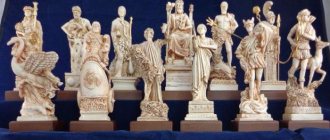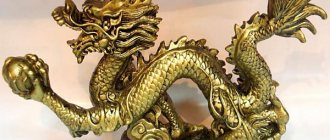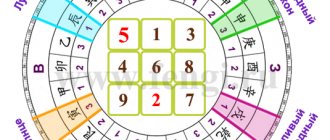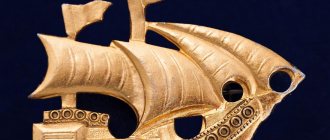Who is the Greek god of wealth? He is not the only one among them. Ancient Greek mythology amazes with its versatility. It combines the morality, ethical principles and culture of many European nations. Mythology is distinguished by special thinking, the study of the world and man's place in it. For help in all their endeavors, the ancient Greeks turned to powerful deities who guided them on the right path and gave them good luck in everything. Who are the Greek gods of wealth? These are the ones that will be discussed in the article.
Attitudes to wealth in Ancient Greece
In Ancient Greece, they were skeptical about wealth: it was believed that making money was much easier than earning a good name and fame. In ancient Greek mythology, there are often cases when a poor person from the people prevailed over the rich aristocracy, which had no authority and respect among the Greeks. Before Greece became an economically developed state, priority was given to intangible areas: medicine, philosophy, science and sports.
Later, agriculture, crafts and trade began to actively develop. It was then that the ancient Greek gods of wealth, fertility and trade came to the fore of the pantheon: Demeter, Mercury, Hermes and Plutos.
At first, the ancient Greeks grew grain crops, but with the development of trade this became an unprofitable occupation, and enterprising people began to trade in the crops that Greece is rich in - olive oil and grapes. Along with the development of trade, the Greek gods of money began to appear.
In parallel, the slave system developed: slaves were the subject of trade, their labor was used in crafts.
The Greek god of wealth is Plutos. With its advent, the concept of “money” becomes popular. They were treated with respect and tried to save every coin. Each policy mined its own money, and trade extended far beyond the borders of Greece. The traveling intermediaries were traveling colonies, traces of which were found in the Black Sea, not far from present-day Sevastopol, Kerch and Feodosia.
With the development of the economy, resellers appeared who changed money among policies. They made bets on interest, gave loans and accepted deposits. Bankers collected huge sums of money, and they had the opportunity to make money from resales.
As stated earlier, the first goddess associated with wealth was Demeter.
Benzaiten
God Benzaiten is considered the deity of the water element and eloquence. Benzaiten is the only woman in the lucky seven. According to the scripture, she defeated a terrible dragon that devoured children. It was the woman who charmed him with her femininity and eloquence. Benzaiten seduced the dragon and married him, which radically changed the life of her dragon husband. The deity has Indian roots. In India, Benzaiten is considered an image of femininity.
The goddess is most often depicted naked or in beautiful clothes, creating the most sophisticated image possible. In rare cases, the goddess is depicted with a snake or on a dragon. A Benzaiten figurine will bring family well-being to every woman.
Throughout history, many people worshiped the gods and believed in their powerful power. With or without the help of divine power and protection, every person by nature strives to survive, and therefore to thrive. Any person desires more not only in wealth, but also in luck.
Demeter
Demeter is one of the most influential and respected goddesses in Greece. She is the goddess of wealth and fertility. Celebrations and honors were held in her honor throughout Greece, especially during the sowing and harvest months. It is believed that without the help and will of Demeter there will be no harvest: farmers turned to her for help and blessings on their crops, and women asked for fertility and the opportunity to bear a child. An interesting feature is that Homer paid very little attention to this goddess: she almost always remained in the shadow of even less powerful gods. Based on this, we can conclude that in the early years other methods of enrichment prevailed in Greece, and agriculture came to the fore much later, displacing livestock breeding. The location of the goddess promised the farmer favorable weather conditions and a rich harvest.
According to legends, Demeter was the first to plow the earth and sow grains in it. The Greeks who witnessed this were sure that the grains would spoil in the ground, but after some time the harvest sprouted. Demeter taught people to care for crops and grow grain, and later gave them other crops.
Quotes from the classics
Claudius Aelianus (lat. Claudius Aelianus, c. 170, Praeneste, near Rome - after 222) - ancient Roman writer and philosopher, representative of the so-called “second sophistry.” Wrote in Greek.) Motley stories . Book III. 23 (quoted from: Elian. Motley stories. - M.-L.: Publishing House of the USSR Academy of Sciences, 1963):
“Alexander’s victories were glorious... Let us admit, for the sake of those who disagree with this, that he did all this only because he was the darling of fate. Still, however, the king did not completely become her slave, although he had faith in the special favor of this goddess towards him.”
Seneca (4 BC, Corduba - 65, Rome - Roman Stoic philosopher, poet and statesman). Medea . 159 (quoted from: Lucius Annaeus Seneca. Medea / Translation by S. A. Osherov // Lucius Annaeus Seneca. Tragedies. - M.: Nauka, 1983. - P. 9):
“Fortune oppresses the timid, but the brave are afraid of it.”
Read all quotes about Tych >>
Demeter and Persephone - ancient Greek gods of wealth and fertility
Persephone took over her mother's baton and became the goddess of fertility and agriculture. Demeter loved her only golden-haired daughter very much and passed on her wisdom to her. She reciprocated her mother's feelings.
One day, an incredible grief happened that crushed Demeter: her daughter was kidnapped. This was done by the god of the underworld Hades, brother of Demeter. Permission for this was given by Zeus himself, who promised his brother his daughter as a wife.
Unsuspecting Persephone was walking with her friends through green meadows, and then she was kidnapped by her future husband. He hid the girl deep underground, and the grief-stricken mother wandered the lands, looking for her. Demeter did not eat or drink for several months, the productive pastures dried up, and her daughter still did not appear. Zeus told Demeter about the agreement, but she refused to share her beloved daughter with her brother, whom she hated since childhood.
Zeus turned to Hades with a request to return his daughter to her mother, but he agreed with one condition: Persephone would spend two-thirds of the year with her fertility mother, and for one-third of the year she would descend into the underworld, having first swallowed a pomegranate seed. In this way, the ancient Greeks explained the change of seasons and crops.
Demeter and Triptolemus
Triptolemus is also the god of wealth among the ancient Greeks. One day, the goddess of fertility decided to give a gift to the son of King Eleusis - Triptolemus. She taught him to plow the land, cultivate it and gave him grains for sowing. Triptolemus plowed the fertile lands of paradise three times and threw grains of wheat into them.
After some time, the earth brought a rich harvest, which Demeter herself blessed. She gave Triptolemus a handful of grain and a magical chariot that could move across the sky. She asked her mentor to go all over the world, teaching people about agriculture and distributing fertile grains. He followed the instructions of the goddess and set out on his way.
Everywhere the god of wealth visited (in Greek mythology this is how it is described) on his chariot, there were fields with rich harvests. Until he arrived in Scythia, to the king of Linha. The king decided to take all the grains and glory of Triptolemus for himself, killing him in his sleep. Demeter could not allow the death of her assistant and came to his aid, turning Linkh into a lynx. He fled into the forest, and soon left Scythia altogether, and the god of money and wealth among the Greeks - Triptolemus - continued his journey, teaching people agriculture and husbandry.
Jurojin
Jurojin is considered the god of longevity. Jurojin is most often compared to the god Fukurokuju; his appearance, origin, and attributes are the same. Sometimes it is said that two deities live in one body. An old man can be depicted with a staff, sometimes with a musical instrument, the sound of which, according to legend, makes a person look younger, or a turtle, which is a symbol of longevity in Japan. The only difference between the gods is that the shape of their heads is different. God grants not only longevity, but also teaches people honors in old age.
A figurine of the deity Jurojin given as a gift for a birthday prophesies longevity for the birthday person.
Plutos
The ancient Greek god of wealth Plutos is the son of Demeter and the Titan Iasion. According to myths, lovers Demeter and Iasion gave in to temptation on the island of Crete and conceived Plutos in a thrice-plowed field. Seeing the couple in love, Zeus flew into a rage and incinerated Plutos' father with lightning. The goddesses of peace and chance, Eirene and Tyche, were involved in raising the boy.
It is believed that Plutos, the god of wealth, was blind and gave gifts to people arbitrarily, without paying attention to their external characteristics or status in society. Those gifted by Plutos received unprecedented material benefits. Jupiter blinded the god, who was afraid that Plutos would be unfair and biased in the distribution of wealth. Therefore, luck in material terms can overtake both bad and good people.
In art, the god of wealth is depicted as a baby holding a cornucopia in his hands. Most often, the baby is held in the arms of either the goddess of fortune or the goddess of peace.
Most often, the name Plutos is associated with Demeter and Persephone. He accompanies and helps everyone who is favored by the goddess of fertility.
The Greek god of wealth Plutos introduced the concept of “goods”. People began to take care of material wealth: save money and increase it. Previously, the Greeks did not attach much importance to material values; they were not concerned about the improvement and standard of living.
Deity cult
It is believed that the heyday of the cult of Fortune occurred during the reign of Emperor Augustus. He considered Fortune his patron. Under him, temples of the deity were actively built. Appeals to the goddess Fortuna were read everywhere. In all corners of the Roman Empire, festivals were held in honor of the goddess.
Images of the deity were found on:
- home decorations;
- lamps;
- vessels;
- coins
They were a kind of talismans. With their participation, the Romans recited hymns to the goddess Fortuna to attract money.
Trying to figure out how to appease the goddess Fortuna, the city authorities installed a giant statue of the goddess on the Roman Capitol. In Prenes the temple of the deity has been preserved: there, on the holidays dedicated to him, rituals were held to the goddess Fortuna.
When the capital of the empire was moved to Constantinople, the Romans continued to build sanctuaries for their gods. The Temple of Fortune was one of the largest and most luxurious.
Fortuna was respected by many residents of Rome, but farmers read especially fervently to the Roman goddess Fortuna. A correctly read mantra of the goddess Fortune could appease the capricious deity, and she would send them a generous harvest or please them with good weather.
The ancient Roman festival of Fortune was called Fortis. It was celebrated in June, and was originally dedicated to agriculture and the forces of nature.
A large number of altars to this deity were built in all corners of the Roman Empire.
She was worshiped by merchants, artists, and warriors. In our concept, Fortune is portrayed as a frivolous creature: modern man loves to use phrases like “Fortune has turned away,” “Fortune loves,” “Fortune hates.” On the one hand, this is true, but, on the other hand, Tyche cannot be called a frivolous deity. She is destiny itself. she can both generously reward and severely punish. Therefore, in ancient times they treated it with due respect, and even trepidation.
Main epithets of the deity:
- Fortune of Augustus. Patroness of the Roman emperors. Her cult began during the reign of Octavian Augustus, who revered this goddess;
- Fortune Redux. This is the goddess of return. After returning from Syria, Octavian Augustus ordered the construction of a temple of the deity in Rome. At the same time, they began to mint coins that depicted the goddess;
- Fortuna Felicia (Felix). Literal translation - Happy;
- Fortune Victrix. Literal translation: Victorious;
- Fortune Forti. Brave;
- Fortune is lenient. There were quite strict images of this deity. Individual ritual libations were given to her in special vessels. This is due to the fact that Fortune itself was associated with any liquids (her father was the titan Oceanus);
- Fortuna Mobilis. Fleeting. This deity was very capricious and fickle. It was believed that she could suddenly turn away from a person and also suddenly generously give him gifts. She was unpredictable, like fate itself;
- Women's Fortune. She patronized women. She especially favored married women and mothers;
- Fortune for Men. She patronized warriors, kings, politicians, artists, and farmers. The deity also hid the physical defects of men and helped them achieve the love of women.
- Benedict's fortune (hence the name Benedict). Blessed. This epithet referred to one of the main properties of the deity, which brought good luck to the house;
- Fortuna Gloria. Glorious (from the word “glory”). This is how they praised the goddess. This epithet was usually heard in numerous hymns that began like this: “Hail Fortune...”;
- Fortune Coin. This hypostasis of the deity has many common features with the “evil” and gloomy goddess Manat. This meant that she could punish and even take away absolutely everything from a person.
Comedy "Plutos"
The comedy was written and staged by the ancient Greek comedian Aristophanes. In it, the Greek god of wealth Plutos is depicted as a blind old man who is unable to properly distribute wealth. He gives gifts to dishonest and vile people, because of which he himself loses all his wealth.
On his way, Plutos comes across a resident of Athens who restores his sight. The God of Wealth sees again, and this helps him to fairly reward people according to their merits. Plutos becomes rich again and regains the respect of the people.
Plutocracy
One of the political regimes was named after the god of wealth - plutocracy. The term was introduced at the end of the 19th century and characterizes a form of government in which government decisions are made not by the will of the majority (the people), but by a small group of oligarchic clans located in the shadows. Such a state is ruled primarily by money, and the legitimately elected government is completely subordinate to wealthy clans.
Plutos and Pluto: ancient Greek gods of money, wealth and abundance
At some point in ancient Greek mythology, two deities were identified - Pluto (god of the underworld) and Plutos (god of wealth and abundance). This is explained by the fact that Hades has countless riches stored deep underground. There are also many myths that unite these gods.
According to more ancient myths, Hades is the brother of Plutos' mother, Demeter, and is therefore his uncle. But later myths claimed that this was one deity. This is confirmed by the consonance of their names: Plutos and Pluto.
Cornucopia
This is a symbol of endless wealth, originating from the myths of Ancient Greece. The horn belongs to the goat Amalthea, who fed little Zeus, who was hiding from his father Kronos on the island of Crete, with her milk.
There is another legend about its origin. Hercules twisted the horn of the river god during the battle. He showed mercy and returned the horn to its owner. He did not remain in debt and gave the world a cornucopia filled with riches.
In art, this symbol is depicted upside down, through a hole in which various fruits are ejected: fruits and vegetables, sometimes coins. Most often, the cornucopia is held in the hands of the Greek god of wealth - Plutos. Some sculptures with this symbol depict the goddess of justice - Themis.
In Ancient Greece, coins were minted with the image of a cornucopia on the reverse side. This was supposed to attract new money and help retain their property.
In the Middle Ages, the cornucopia was transformed into the Holy Grail, which is the source of eternal life and wealth.
Ebisu
The god of luck and happiness, Ebisu, is the only one of the seven happiness of Japanese origin, considered the god of hard work. According to legend, a boy named Hiruko was born without arms, legs or bones. At the age of one, he was carried away on a boat to the sea, where he had to survive in inhumane conditions. Fate subjected him to terrible trials. He swam for a long time until he washed up on the island. He was saved by a fisherman named Ebisu Saburo, who subsequently raised him as his own son. When the boy was three years old, the gods had mercy on the baby, taking into account all the difficult trials he had passed. So Hiruko’s arms and legs grew, and he became a deity named Ebisu.
God Ebisu is depicted as a cheerful old man with a fish in his hands and a fishing rod or fan. Most often, the gods Ebisu and Daikoku are placed together; according to legend, their strength together is more powerful and will definitely bring happiness.
Mercury (Hermes)
Mercury is the god of wealth, trade and the patron of thieves. He is depicted wearing a helmet and sandals with wings, a conciliatory staff and a bag filled with gold coins.
The Greek god of wealth, Mercury, was borrowed by the Romans from the Greeks after their conquest. In Ancient Greece, Mercury was called Hermes. Originally it was the god of cattle and cattle breeding. During the time of Homer, he became a mediator between the gods. It was then that he received wings on his sandals and helmet to move quickly while performing various tasks. He also had a reconciliation stick made of gold, with its help he resolved conflicts and disputes.
With the development of agriculture, he became the patron saint of bread and grain, and later, when market relations were actively developing, he became the god of trade and the patron saint of merchants. People turned to him for help in out-purchases, trade transactions and exchanges of goods.
It is believed that it was Hermes, the Greek god of wealth, who gave the Greeks numbers and taught them how to count. Before this, people paid by eye, without paying much attention to the amount of money.
Even later, Hermes became the patron saint of thieves: he was depicted with a wallet in his hands or with his hands tied next to Apollo - a hint of theft.
When the Romans conquered Greece, they borrowed the god Hermes, renaming him Mercury. For them it was the god of prosperity, enrichment, trade and profit.
Nowadays, the image of Mercury can be found on the emblems of banks, large trading companies and auction exchanges.
Bishamon
God Bishamon was borrowed from India, where he was the god of war or in other words, the warrior God who protected and guarded the heavens. In Japan, it is believed that Bishamon brings people wealth and early luck, being officially the god of wealth. In Japan, it is believed that the Warrior God fights on the side of good, destroying evil in the world, giving happiness to everyone who asks.
Most often, Bishamon is depicted in armor and a helmet, holding a weapon in his hands. It is believed that if you keep the Bishamon figurine with you or in a visible place, then financial improvements will come.
King Midas and gold
In Ancient Greek mythology, Midas was the king of Phrygia. From childhood he knew that he would be a rich and influential man: all the signs of fate pointed him to this. Even small ants brought grains and put them in his mouth.
One day, Silenus, the teacher of Dionysus, came into the possession of Midas. He got lost in the forest when Dionysus was leading his army through Phrygia. King Midas saw this and poured wine into the streams passing through the forest. Silenus drank water mixed with wine and immediately became drunk. Unable to get out of the forest, he wandered through it for a long time until Midas met him and took him to Dionysus.
Happy Dionysus invited Midas to make any wish. He wished for a “golden touch”: that everything his hand touched would become golden.
Dionysus obeyed the king's wishes, and he arranged a magnificent celebration, setting the table with various drinks and dishes. But at the table he realized that he would die of thirst and hunger, because food and drinks in his hands became gold.
The king rushed to Dionysus with a request to deprive him of the gift, and he ordered him to bathe in the Pactolus River. Midas lost his ability to turn everything into gold, and after that the river became golden.
Nowadays, the expression “Midas touch” means the ability to quickly earn money out of thin air and be successful in all endeavors.
How to get in touch with the goddess
To earn the favor of the goddess and resonate with her vibrations, it is necessary to practice mantras using her name.
Lakshmi's main mantra sounds like this:
Another glorifying mantra goes like this:
Both mantras are repeated an odd number of times, a multiple of three - 12, 24, 108. The more repetitions you say, the more closely you will enter the flow of the energy of the goddess.
The attention and favor of the deity can be attracted by placing a figurine in the house or printing an image on a printer. Worshiping the gods always brings them favor.
To successfully practice mantras, you need to combine the repetition of sacred sounds with meditation on the image. To achieve success in life, practice the Gayatri Lakshmi mantra for 36 days, 108 times at sunrise.
The symbols of the goddess that attract her energy are all large flowers, lapis lazuli, yellow or red jade. The metal that expresses Lakshmi's abundance is gold.
You can make an altar to the goddess yourself. To do this, cover the surface with a new cloth with golden threads, place a figurine and symbols - gold jewelry, stones, flowers. You can smoke an aroma with the smell of lotus or other flowers.
At any time, you can turn on a recording of a mantra glorifying Lakshmi and meditate on her image:
Kairos
Kairos was a revered deity among the ancient Greeks. He was the patron of chance - a happy moment that can give good luck and prosperity if you grab it in time. He is always somewhere close to Chronos, the patron of the sequence of time. But unlike Chronos, Kratos is very difficult to meet and catch: he appears only for a second and instantly disappears.
The Greeks believed that Kairos could show them a happy moment in which luck would smile on them and the gods would be supportive in all their endeavors.
God moves silently and quickly among mere mortals; meeting him face to face is a great rarity and luck. At this moment, the main thing is not to get confused, grab Kairos by the long forelock and ask fate for everything you want. Missing a chance is a great sin, since it is given only once in a lifetime.
Kairos is depicted as a young man with wings on his back and wearing sandals. He has a long golden curl on his head, by which you can try to grab him. Kairos holds scales in his hands, which indicates that he is fair and sends good luck to those who work hard and wish for success.
Daikoku
The god of wealth and prosperity in Japan is Daikoku. The god is depicted in national costume with a mallet in his hands and a bag of rice. Sometimes the god Daikoku is depicted crawling out of a bag or in a bag. He is considered the god who gives wealth.
In Japan, it is believed that the animal rat lives only in rich houses, where there is an abundance of food and supplies.
According to legend, the Daikoku bag contains a lot of rice, coins and jewelry. It is the rat who gnaws the bag while dancing with a mallet, calling luck and wealth into the world, and all the contents pour out of it.
It is recommended to place the talisman in a visible place where it would most often catch the eye. According to legend, it is attention to the talisman that will reward you with prosperity. If you take the palms of Dayokoku and rub it, then wealth and prosperity will come to you.
Tyukhe
In ancient Greek mythology, she is the goddess of luck, happy fate and the patroness of chance. Tyukhe is the daughter of the ocean and Tetia (mother of the gods and patroness of all rivers).
Tyukhe became a cult deity when ordinary people's faith in the gods and their abilities was shaken. The ancient Greeks believed that Tyche accompanies people from birth and throughout their lives. Many cities considered Tyukhe their patroness, her image was minted on coins, and her statues decorated houses.
The goddess was depicted wearing a crown and with the main attributes: a wheel (symbolizing the changeability of luck, hence the expression “wheel of fortune”) and a cornucopia. Tyche often holds in her arms little Plutos, the god of wealth, whom she raised on the island of Crete in secret from his father Zeus.
Hotei
Hotei is the god of wealth. God Hotei is the god of prosperity, fun and communication. According to legend, he was a wandering monk of Tsitsa who brought fun with him. The monk traveled with a bag, or hotei in Japanese. According to legend, it was from his bag that Hotei extracted everything that people asked for. So Hotei became the god of wealth. It was believed that he had the whole world in his bag. After the monk died, he was considered the eighth reincarnation of Buddha. Hotei is considered the only mortal god from the “seven of fortune.” Hotei is often compared to a laughing Buddha.
God Hotei is depicted with a bag and a coin or piece of gold. His figurine should be placed in a prominent place in your apartment or office, and it will definitely bring wealth.
Fortune
When the Romans conquered Greece, they adopted the goddess Tyche, calling her Fortuna. She is the goddess of luck, happiness, prosperity and success.
According to mythology, Fortune shed her wings when she arrived in Rome and promised to stay there forever. Over time, the cult of Fortune developed rapidly, eclipsing the other gods. She was thanked for sending good luck and even for failures and grief. She was also called the First Born, Happy, Kind and Merciful. All babies and newborns were dedicated to her; her touch determined the future fate of a person.
Later, when moral and ethical foundations began to gradually collapse, the goddess Fortuna became the patroness of the hearth, love and family happiness for both women and men.
Fortune adorned Roman coins and was depicted in art as a woman with a cornucopia on her shoulder, from which wealth poured out - fruits, vegetables and gold. Sometimes she held a chariot in her hands or stood on the bow of a ship. This symbolized the fickleness of fate.
Many Greek gods of wealth and fortune live on in mythology to this day. Is there any truth to this or is a myth always a myth? Everyone has their own opinion on this matter. In any case, it is interesting and educational.
Feng Shui
Eastern countries: China, India and Japan - gave the world seven deities who give wealth, abundance and good luck. Today we know how the seven gods of luck and wealth are depicted in the form of small mascot figures.
According to another belief, the monk Tenkoy learned about the seven blessings that identify each deity. Nowadays, talismans are popular, most often made with wood carvings using the netsuke technique.











